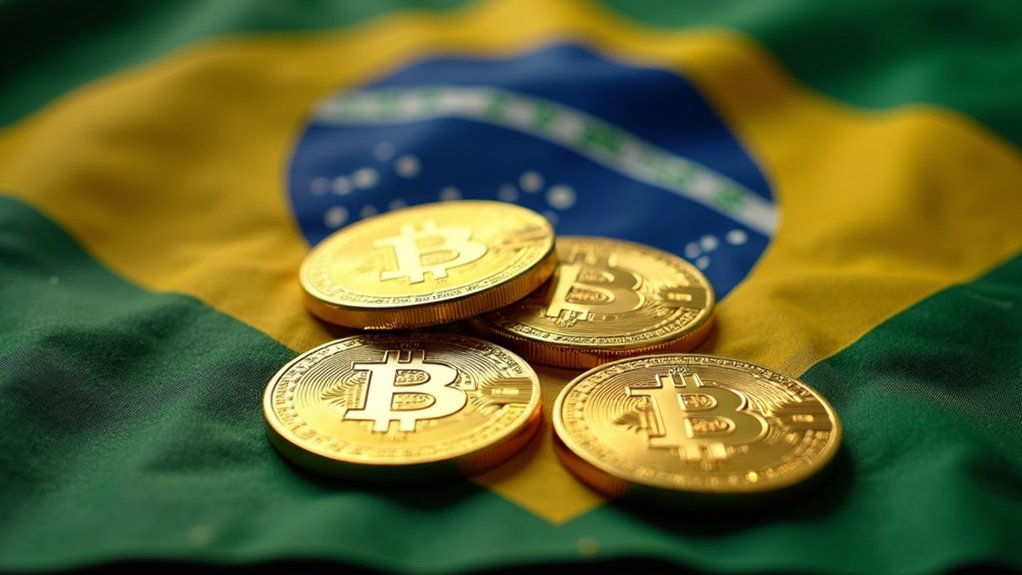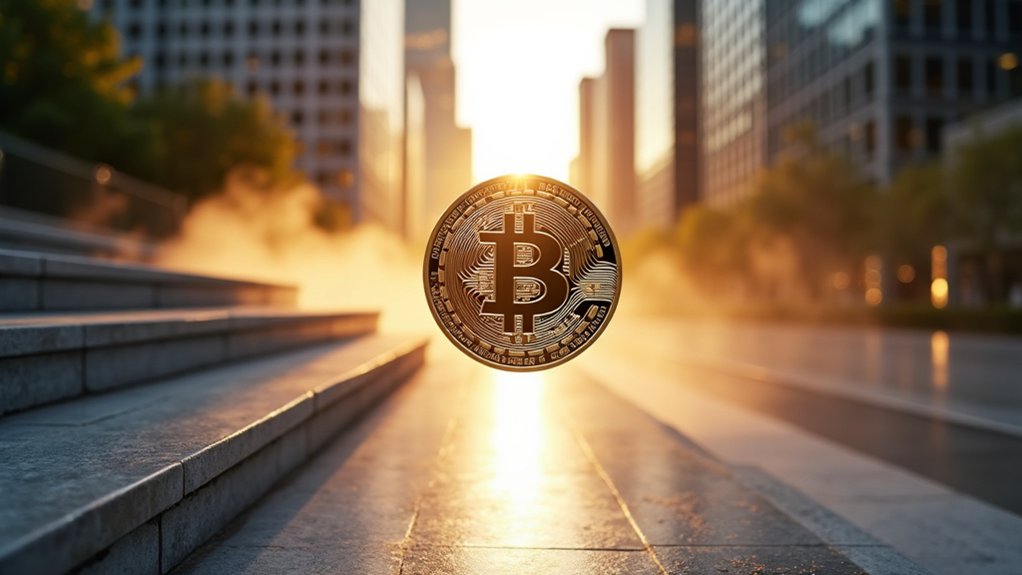While most nations debate the merits of digital currencies from the sidelines, Brazil has decided to dive headfirst into the crypto deep end with a proposal that would allocate up to 5% of its $300 billion international reserves—a cool $15 billion—to Bitcoin.
Bill 4,501/2024, introduced in November 2024, represents more than legislative grandstanding; it signals a fundamental shift in how emerging economies might approach monetary sovereignty. The proposal aims to shield Brazil’s reserves from currency fluctuations and geopolitical risks while positioning Bitcoin as “digital gold”—though one wonders if traditional gold ever experienced 80% price swings in a calendar year.
Brazil’s bold Bitcoin gamble reveals emerging economies’ growing appetite for monetary independence—volatility and all.
The upcoming August 20, 2025 public hearing by Brazil’s Chamber of Deputies marks the country’s first official sovereign Bitcoin reserve debate. Six institutions, including the Central Bank and Ministry of Finance, will participate alongside crypto advocacy groups and fintech representatives—a gathering that promises to be either historically prescient or spectacularly awkward, depending on Bitcoin’s mood that particular week. The initiative would establish RESBiT, a sovereign digital asset reserve designed to include bitcoin and other secure digital assets as part of Brazil’s modernized reserve strategy.
Brazil’s motivations extend beyond mere diversification away from US Treasury holdings. Officials argue Bitcoin could hedge against exchange rate volatility affecting traditional reserves, a proposition that requires considerable faith in cryptocurrency’s stabilizing properties. The country’s renewable energy surplus, primarily from sources like hydroelectric power, could uniquely position Brazil to offset Bitcoin’s volatility risks through sustainable mining operations that convert excess capacity into revenue. Central bank figures, predictably, express skepticism about incorporating such volatile assets into foreign exchange reserves.
El Salvador’s 2021 Bitcoin adoption offers a cautionary precedent: increased tourism and easier remittances (worth 20% of GDP) came alongside reported multi-million-dollar losses from price volatility. Brazil’s $2 trillion GDP dwarfs El Salvador‘s $30 billion economy, magnifying potential consequences proportionally.
This initiative mirrors growing global interest in sovereign Bitcoin adoption, with regions from Texas to France exploring similar strategies. Brazil could become Latin America’s first major economy to formalize Bitcoin reserves, potentially reshaping the continent’s financial landscape. Unlike Bitcoin which operates on its own blockchain network, tokens exist on established platforms like Ethereum, highlighting the distinction between different types of crypto assets that governments must consider when crafting digital reserve strategies.
The bill requires Chamber of Deputies approval, then Senate passage, before reaching presidential signature or veto. Market observers recognize this as a pivotal moment where cryptocurrency meets institutional finance—assuming, of course, that Bitcoin maintains its composure during the legislative process, which historically has been far from guaranteed.






